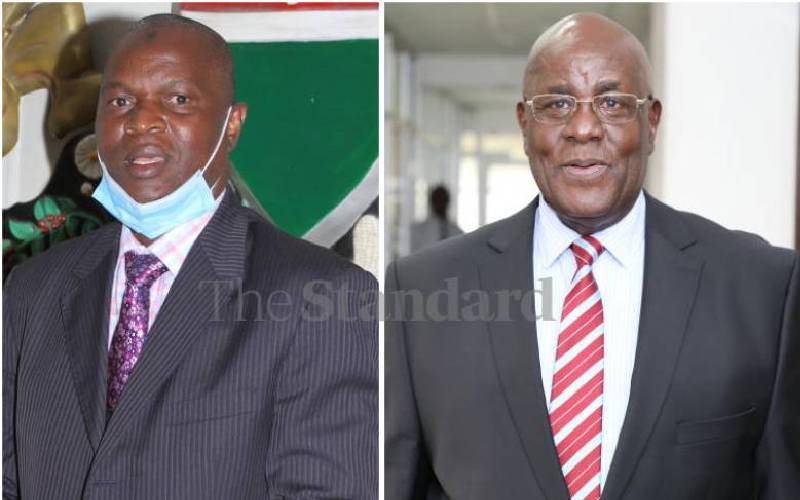×
The Standard e-Paper
Fearless, Trusted News

Justices Aggrey Muchelule and Said Chitembwe. [File, Standard]
Besides the heady drama of seizing a judge, the irony of the lawgiver in the hands of the law, the paradox of a high priest of the law becoming its victim, there are disturbing undercurrents in the arrest of two judges this week.